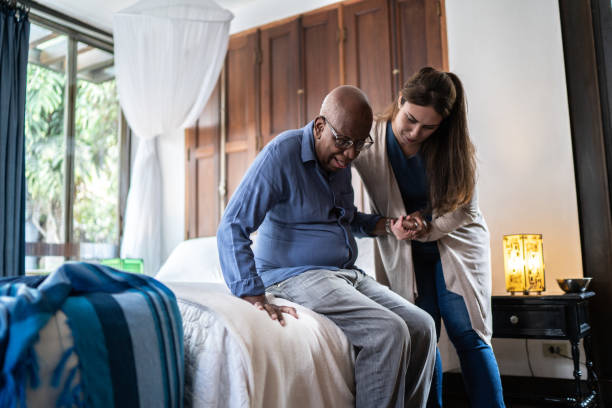- We are all ageing, and when we become old, we will need people to take care of us, so we should try and care for the elderly so that when our time comes, we will not lack people to take care of us.
Caring for the elderly is an intense responsibility that often goes unnoticed, hidden behind closed struggles. As our population ages, the challenges associated with elder care become more articulated, affecting families, communities, and society.
Various aspects of physical and emotional changes accompany the journey of ageing. For many elderly people, maintaining independence becomes more challenging, leading them to rely on family members or professional caregivers.
The physical requirements of caregiving are real. The elderly need assistance with daily activities such as bathing, dressing, cooking, washing, and movement. All these require patience and resilience from those attending to them.
Financial challenges also play an essential role in the caregiving experience. For many families, navigating the intricacies of insurance, understanding medical terminology, and coordinating care plans all stress an already difficult situation.
Social rejection is another challenge. Caregivers often find themselves distanced from their social networks due to time restrictions or the stigma associated with caregiving.
Read More
The community tends to play a crucial role in supporting caregivers. In many communities, however, there are inadequate resources and support systems. The absence of relief care, support groups, and community programs leaves caregivers with a heavy burden of tackling their responsibilities alone.
There is an urgent need for combined efforts to address the challenges faced by elderly people and their caregivers.
The roles of healthcare systems cannot go unnoticed. Although medical professionals provide the essential services required of the elderly, the continuity of care often lies most with family members.
How we approach elderly care should transform as our communities evolve. We should embrace policies that promote affordable healthcare and caregiver support programs to mitigate some of the challenges caregivers face.
Public awareness campaigns should also be conducted frequently to illuminate the challenges faced by caregivers and promote a culture of support.
Caregivers should also be educated and trained to equip themselves with the skills and knowledge needed to provide adequate care, enhancing the quality of their lives and those of the elderly.
We are all ageing, and when we become old, we will need people to take care of us, so we should try and care for the elderly so that when our time comes, we will not lack people to take care of us.












